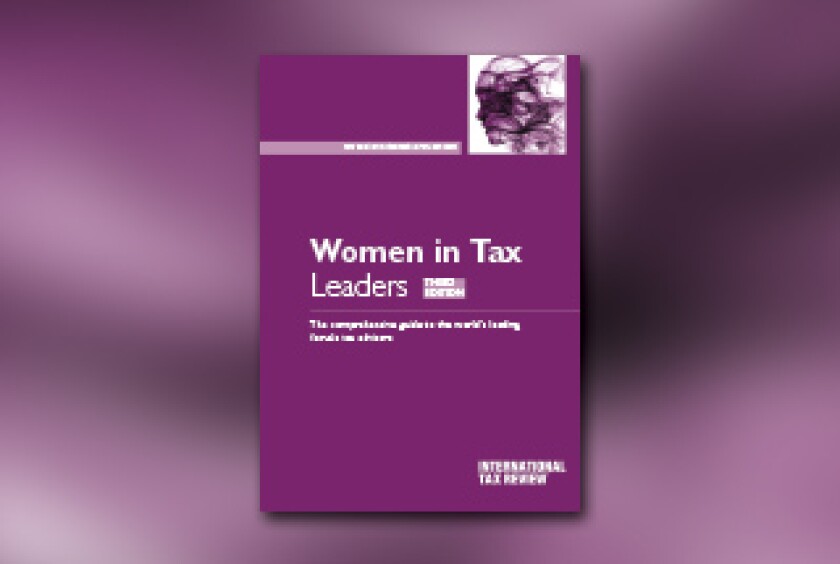International Tax Review received a record number of nominations this year for the 2017 Women in Tax Leaders guide, reflecting the increasing number of women specialising in various areas of tax.
Our intention with this guide is to shine the light on the women who are taking strides in their fields. We want to show the progress that is being made already, but also that this development needs to continue for women in what is perceived as a male-dominated industry.
International taxation continues to be in a period of extreme change. Recommendations from the OECD's BEPS project are changing laws in countries around the world and multiple jurisdictions are seeking to modernise their tax systems while getting increasingly aggressive in their tax collection tactics against multinationals. As this landscape develops, tax advisory and the individuals who work in it are in massive demand. This is why female advisers need a platform to demonstrate their contribution to the advisory field.
The past year has seen many women succeeding in traditionally male dominated environments. Hillary Clinton became the first woman to run for the US presidency and Theresa May became only the second UK female prime minister. On a global scale, the number of women on the boards of big businesses is growing, and some are even getting paid better than their male counterparts. However, these successes are still not as common as we would hope and the positives are often overshadowed by issues affecting women such as, for example, gender pay gaps. Moreover, US President Donald Trump appears to have left women entrepreneurs and professionals out of discussions to overhaul the tax legislation.
This guide, which highlights the excellence of the industry’s top women, is only in its third year, but the interest in it has grown in terms of firms and clients keen to nominate the female advisers who are making an impact in their specialised jurisdictions and industries. The women listed are clearly leaders in tax and we hope to continue showcasing their excellence.
International Tax Review is proud to present this third edition of the Women in Tax Leaders guide so you can obtain reliable and trustworthy advice in each of the areas highlighted above, in each of the 62 jurisdictions covered.











